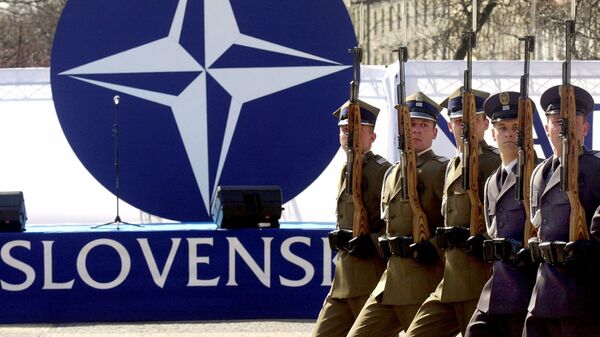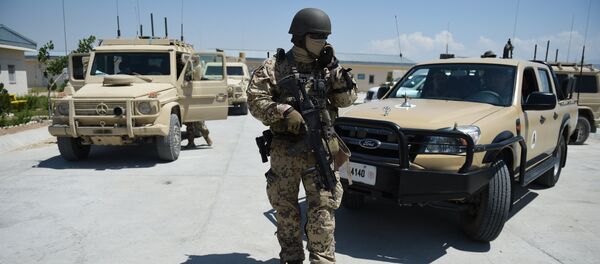In all, 62 percent of Americans hold a favorable opinion of NATO, up from just around 50 percent the year previously, according to the Pew Research Center survey.
Majority support for NATO also strengthened in Canada (66 percent), the Netherlands and Poland (79 percent respectively). The most sizable increase was recorded in France, where support jumped 14 percentage points to 60 percent. Spain was the only European country in which the alliance had below-majority support (45 percent).
62% of Americans now hold a favorable view of #NATO, up from just over half in 2016 https://t.co/oLbtrAP2qZ pic.twitter.com/HxVwJHBYHd
— Pew Research Center (@pewresearch) May 23, 2017
The year previously, negative perceptions of NATO were much tied to doubts over whether the US would honor its commitment to defend NATO allies in the event of them being attacked — then-presidential candidate Donald Trump called NATO "obsolete" and raised doubts over the continued existence of the bloc. Since taking office, Trump has reversed his position and voiced support for NATO, and most Europeans are now confident Washington is committed to the principle of mutual defense.
Asked whether the US would honor its commitments, majorities in each country replied affirmatively. The figure was lower (57 percent) in Poland, although Polish faith in this regard has increased by eight percentage points since 2015.
The more I look at this, the more fascinating I find it.
— Ulrike E Franke (@RikeFranke) May 24, 2017
Left/right division in support of #NATO in Europe compared to US.
(Data by Pew) pic.twitter.com/E7J3u7BDu5
The findings suggest Sweden is also increasingly keen on membership, with 47 percent of Swedes now wanting the country to be part of NATO, compared to 45 percent last year. The figures may suggest constant muttering about an imagined Russian threat in the mainstream Scandinavian media is succeeding in spreading paranoia among the public, although 39 percent remain nonetheless steadfastly opposed to membership.
This antipathy comes despite rising levels of pro-NATO rhetoric employed by the German government, which recently dispatched Bundeswehr soldiers to Lithuania. While the country maintains NATO's fourth largest military, the public largely remains implacably opposed to military engagements. Reflecting this aversion, Foreign Affairs Minister Sigmar Gabriel has made clear he views NATO's "two percent" requirement as a guideline, not a requirement. Germany currently spends 1.2 percent of its GDP on defense, or around US$37 billion (€35 billion). Reaching two percent would obviously necessitate almost doubling that figure, a prospect Gabriel has dubbed "totally unrealistic."
"I don't know any German politician who would claim that is reachable or desirable. We respect the two percent [figure], but it was formulated as a guideline, not a goalpost," Gabriel previously said.
As a demonstration of this resistance, according to a poll published in German media, opposition to the controversial, potentially illegal April 7 US airstrike in Syria was sizable among the German public, with 59 percent disapproving of the attack, and 80 percent saying there should be no more strikes on Syrian territory.
Angela Merkel's Christian Democrat Union may favor a beefed-up military role for Germany in the 21st century, but public hostility, and the opposition of her SPD coalition partners, may be insurmountable barriers to achieving that end.
The poll is published ahead of a May 25 NATO summit in Brussels, which marks Trump's maiden voyage to the EU as president. At least 10,000 people are expected to march through the city in demonstration against the bloc and the president. The summit is being held to welcome the bloc's newest member Montenegro. The small former-Yugoslavian country joined the block despite widespread public opposition, and predictions from analysts that membership will result in a spate of grave consequences for the country.




